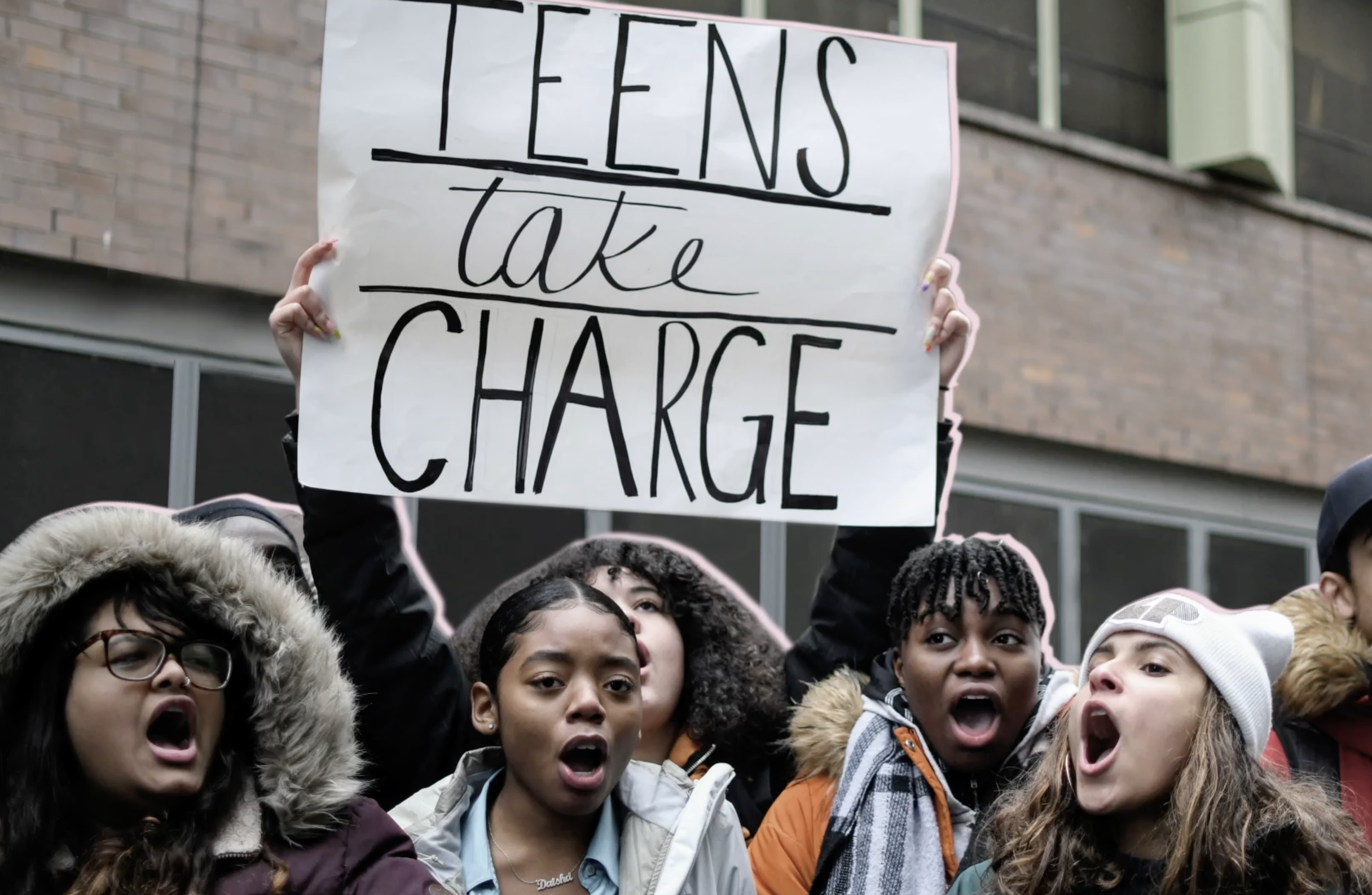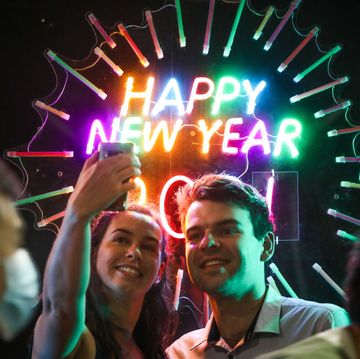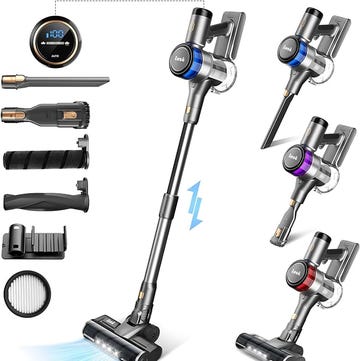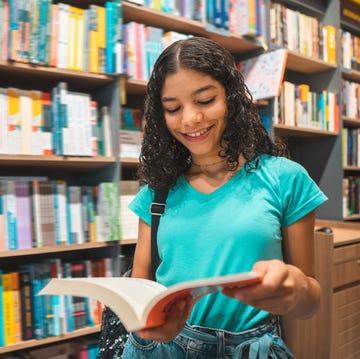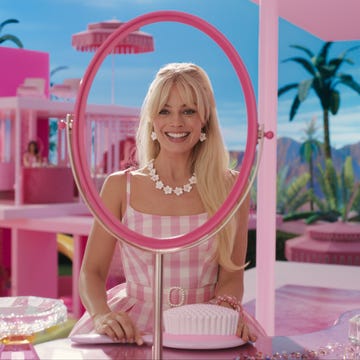Somewhere between virtual school and homework, a group of teens in New York City is finding time to fight for equality in their school system. They're members of Teens Take Charge, a student-led organization that advocates for fair education in New York City. "It's a tale of two cities. Those who have, and those who have not. And we are battling for a better future," says Meril, a 16-year-old Teens Take Charge member from Queens.
The group formed in 2017, and most recently launched a campaign called Education Unscreened, which aims to create an equal admissions system for public high schools in New York City by removing a rigorous application process for certain high-performing schools, known as “screens.” According to Teens Take Charge, the screens “have a profound segregating effect on the system.” To change this, the organization is demanding they be removed. “To end this tale of two school systems, we must eliminate all discriminatory admissions screens, including state exam scores, GPA, attendance, punctuality, zip code, portfolios, in-person interviews, auditions, and speciality exams,” their website reads.
“The screening process in New York City does not take into account a lot of things that Black and brown students face on the daily,” says Maryam, a first-generation Guinean American and member of Teens Take Charge. Attendance is a criteria for screened schools, and something lower income families struggle with for no fault of their own. “I have three younger siblings, and I pick them up after school, help them with their homework and whatnot,” Maryam explains. With this, the high school senior says it’s inevitable that she might be late to or miss school. Maryam did not get into a screened high school, so attends the unscreened college preparatory school near her home. Now a senior, she can still recall how it felt when she wasn't accepted into her first choice school as an eighth grader. "[It feels like] you're not good enough. Even though you've exhausted all the opportunities you have, you are still not good enough," she says.
La'Toya, a member of Teens Take Charge, points to how she’s unable to engage in extracurricular activities — one of the criteria by which students are evaluated for admissions to screened high schools — because she has to help provide for her family. “Every two weeks [my dad] has to pay the rent. That means food, clothes, [my] phone, and bills, I have to cover that,” explains La'Toya. Joining clubs or playing after school sports was never a luxury the high school junior could afford. “When someone’s like, ‘Oh yeah, I have to go to soccer practice after school,’ I am like, 'I have to work after school',” she says. La'Toya did not get into a screened high school, so attends a six-year career and technical education school.
Beyond attendance records and after school activities, the screens also look at test scores. “We’re looking at parents that will send their kids to test prep and pay thousands of dollars for them to prepare for an entrance exam to a high school,” says Brandon, a high school senior and member of Teens Take Charge. Brandon says that access to additional tutoring and learning programs simply isn't an option for students whose families can't afford it, and therefore, put them at a disadvantage when it comes to their scores on the standardized tests required for admission to screened schools. "It’s not so much of a smart gap or an IQ gap," Brandon continues. "It’s more of a wealth gap."
The difference in attending an unscreened school versus a screened school can have a lasting impact on a student’s education. “We don’t have a lot of working calculators and we don’t have different classes like AP or anything like that,” says Latoya. “Screened schools are better. A lot of the time they have better teachers, they’re in better locations, they have more space,” explains Brandon. A 2015 study conducted by Measure of America found that students at screened schools are more likely to graduate.
Ultimately, Teens Take Charge wants to eliminate the "tale of two school systems" that they say currently exists, and end the "intense levels of segregation," that Brandon says the screens have caused. According to the Teens Take Charge website, “Of the 30 most academically screened high schools, 27 are majority white and Asian (in a system that’s less than one-third white and Asian).” It also points out that “hundreds of unscreened schools are at least 85% Black or hispanic and 85% low-income.”
With these statistics in mind, Teens Take Charge filed a complaint with the U.S. Department of Education’s Office for Civil Rights on November 16, 2020. In this complaint, the group says that the New York City Department of Education’s system of admissions “screens” violates students’ rights under Title VI of the 1964 Civil Rights Act. This act says that no person in the United States can be excluded from a federally funded program on the ground of race, color, or national origin. And while there is a long road ahead, small changes are coming.
On December of 2020, one month after Teens Take Charge filed the complaint, the Department of Education permanently eliminated geographic priorities, which was one item on the long list of screening criteria. This means that moving forward, a student’s address can no longer count as screening criteria. In an e-mail statement to Seventeen, the New York City Department of Education wrote, “While we know there is more work to do, we appreciate the partnership of Teens Take Charge in helping bring real, lasting change to our public schools.”
If their work so far is any indicator, these teens will make sure that message is heard.
Sign Teens Take Charge's latest petition here!
Executive Producers: Zuri Rice, Jason Ikeler, Supervising Producer: Amanda Kabbabe, Director of Photography & Editor: Andrew Clancy, Line Producer: Pamela Kirkland, Director of Post Production: Adriana Serrano, Graphic Designer: Bin Jin, Assistant Editor: Daniel Marques

I like pink, iced coffee, and long walks through the candle section. When I'm not lighting up my favorite scents (probably while testing out new skincare), you can find me writing and editing all of the lifestyle things at Seventeen.
